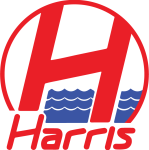The cost for repairing or replacing a sewer continues to rise along with cost of labor, material and the overall cost of operating. It is important for you to understand all of the cost factors associated with a new sewer line.
- Location – The difference between working no a small one way side street and a main thoroughfare in Manhattan. Having experience working in all areas will assist the estimator in determining the overall conditions which may result in additional time and cost. Another common issue that may impact the overall cost is utilities in the roadway that may require your plumber to hand dig instead of working with a backhoe.
- Size of the new sewer installation- The minimum size sewer to be installed in Brooklyn, Queens, Staten Island & the Bronx is 6″ cast iron pipe. When working in Manhattan the minimum size is 8″ which is nearly 3x as much as the cost of a 6″ pipe. In rare cases a new building may require that the new sewer line to be installed with ductile iron pipe which is much more costly than cast iron pipe.
- Depth of the city sewer- The depth of the sewer will determine how long it will take to install your sewer and as a result, the deeper the more expensive. The average depth of a sewer connection in NYC is 12′, when digging for a sewer at a greater depth there is a good chance that the installation will cost more due to the time it will take to excavate and prepare for the installation.
- How much pipe is required- The average sewer will require 40′ of pipe. The more pipe that is required the more costly your sewer installation will be.
- DOT protected roadways- This is a roadway that has been re-surfaced by the city within the previous five years. If the roadway is protected the plumber will be required to obtain a protected street permit which is more costly than a non protected street permit.
- Restoration- The more your plumber excavates, the more they will be required to restore. The more that is required to be restored, the more costly.
- Carting debris- In some cases the soil below ground is approved to re-use for back fill, which will result in less cost than if all of the dirt must be carted off to the dump, and clean soil must be carted in.
There are always additional details that should be discussed with your licensed plumber. We suggest that you have the plumber do an on site walk-through at the time of your estimate which will assist you in understanding all of the cost variables, and ultimately making a good decision.




















